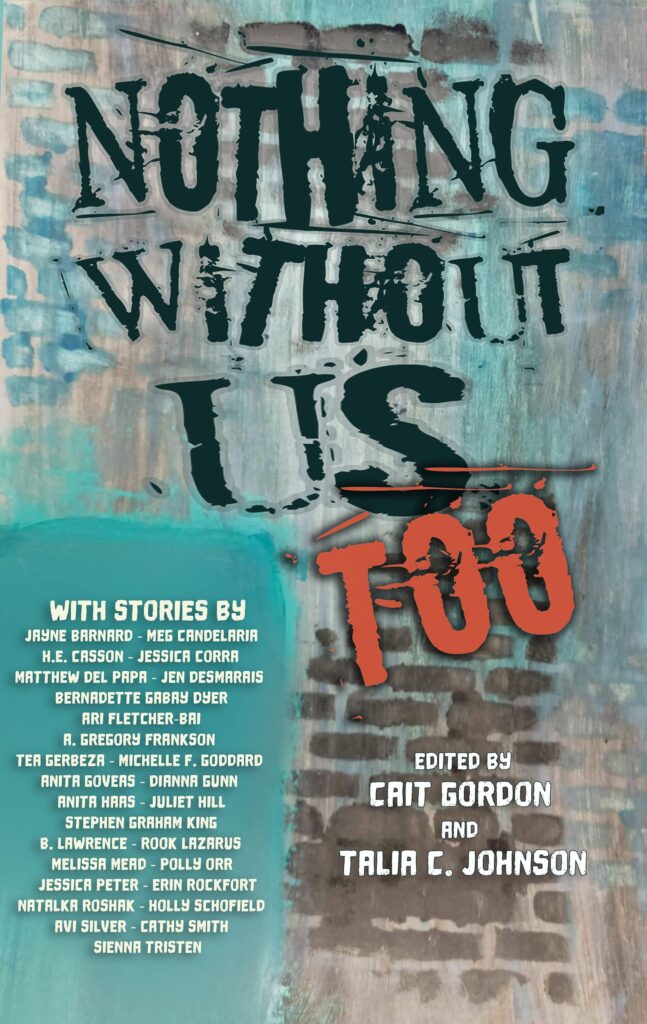 Nothing Without Us Too
Nothing Without Us Too
Edited by Cait Gordon & Talia C. Johnson, 290 pgs, Renaissance, pressesrenaissancepress.ca, $25
Following 2020’s Nothing Without Us, Nothing Without Us Too is the second anthology of speculative and realistic fiction from authors who are disabled, d/Deaf, Blind, neurodivergent, Spoonie or managing mental illness. This profoundly scarring anthology now carries a well-deserved Prix Aurora Award.
Even with the long list of authors with various disabilities and vastly different approaches to writing, most stories share a sense of solitude, alienation and loneliness: “All the loneliness, the fear, the never belonging, the pain so thick and choking it chained you to bed,” as Erin Rockfort’s “Lament of the Lotus Eater” puts it. And while this may be very well expected, the anthology surpasses this focus through its use of genre.
With many of these speculative stories rooted in sci-fi, the line between reality and metaphor nearly disappears, playing with a “normie” reader’s inability to clearly differentiate between fact and fiction when it comes to the realities of disability. In Jane Barnard’s “Crow’s Hoard,” for example, we learn that “the government had banked on disabled plague survivors dying quickly of accumulated physical impairments or by suicide. Many had obliged.” Such commentaries feel closer to terrible realities rather than fiction. This makes the reader question whether terrifying acts such as losing limbs are fictional or real, since in the context of this anthology they could be either. This line is blurry enough that perhaps the speculative and sci-fi elements do some disservice to these stories, inadvertently softening realities of disability that normies could never fathom.
The stories in this anthology linger in the mind and are certain to leave the reader with some scar tissue.
